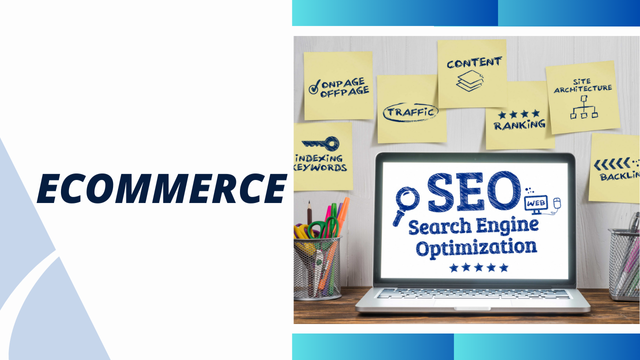Ecommerce SEO: A Complete Guide to Optimizing Your Online Store
Your store must rank high in searches before it can attract customers and help increase sales. This is where Ecommerce SEO comes in-having a value-added difference approach to harnessing online stores to get much bigger visibility, ranks, and traffic. In this article, we will bring to light the essentials of e-commerce SEO and why it needs to be pursued along with practical tips and tactics that could help your store dominate the SERPs.
What is Ecommerce SEO?
Ecommerce SEO is optimizing your online premises to be more visible in search engines. This includes tweaking your site structure and optimizing product pages, content, and user experience-all aimed at attracting organic traffic. Sure enough, this is a specialty of search engine optimization as opposed to being some sort of ‘general SEO’ focusing on ranking product and category pages-the mainstay of any online store.
Ecommerce SEO: Complete Guideline for Enhancement of Online Store
In the competitive digital marketplace today, merely possessing an ecommerce site is not enough for your business; it has to place high in search engine results to attract customers and eventually bring sales. This is where Ecommerce SEO comes in: a professional approach of optimizing online-stores for visibility, ranking, and traffic. Thus, in this piece, we will present some essentials of e-commerce SEO, its value, and most importantly, actionable strategies that will ensure your store becomes a search engine results page (SERP) engine.
Ecommerce SEO: What is it
It is the optimization done on your online store for the popular search engines for visibility. You will essentially have to change and improve your website structure, product pages, content, and user experience overall to generate organic traffic. Not that it is different from the generic SEO process; generally speaking, e-commerce SEO is that which looks to rank all those product and category pages that form the spine of an online store.
Ecommerce SEO is Important because:
1. Increased Organic Traffic: Free target traffic could be driven by SEO to your store and reduce dependencies on paid ads.
2. Higher Sales and Conversions: Uses high intent keywords like “buy [product] online” for search ranking, increasing the chance for conversion.
3. Enhanced User Experience: Doesn’t that make it easier to navigate a site that has been well designed?
4. An Effective Form of Digital Marketing for SEO: With long-term benefits, SEO has the continuity of traffic generation with less or no further money spent on advertisement.
Keywords – Core Pillars of Ecommerce SEO
1. Keyword Research
Identify buyer intent keywords: You can use Google Keyword Planner or Ahrefs and find keywords around your products. Long-tail Keywords: These can be phrases like “affordable running shoes for women,” and you could be surprised at the relatively low competition with more chances of sales. Insert the keywords into product descriptions and meta descriptions and URLs.
2. On-Page Optimization
Product Pages: Write unique and detailed product description infusing target keywords. Optimizeproduct title, meta description, and headings. Include good quality image along with descriptive Alt text.
3. Category Pages:
Create category page that is keyword-rich and navigable. Filters and Sorts for a Better User Experience. Internal Linking: Linking up related products and categories to guide users and distribute link equity. Site Architecture Clean and logical URL structure: Example www.store.com/category/product-name. Navigation must be incomparably intuitive with clear menus and breadcrumbs. Keep your site mobile-friendly and responsive, as a significant portion of ecommerce traffic comes from mobile users.
4. Technical SEO
Page Speed : This is better for the user’s experience as well as search ranking. Secured Website : HTTPS. This is what builds trust and very much preferred by search engines. Fix Duplicate Content : By applying Canonical Tags to handle such duplicate pages, which are the result of product variations. Schema Markup : This is important to implement any structure data markup in order to serve rich snippets like reviews, pricing, and availability in search results
5. Content Marketing for E-commerce
Initiate Blogs on different informational queries like “how to choose the best running shoes.” Publish guides, FAQs, and videos to help customers and so gain backlinks. Utilize user-created content such as reviews and testimonials for additional SEO benefits.
6. Link Building
Team up with influential personalities and bloggers to display your products. Provide guest posting facilities to relevant sites for effective backlinks. Participate in forums and other industry events to get acquainted with the people.
7. Voice Search Optimization
Optimize for vocabulary that would be favorable to phrases like “Where can I get cheap headphones?” or other questions. Use natural language and long-tail phrases in your writing.
conclusion
It is the ecommerce SEO which actually drives sustainable growth and long-term survival in the hypercompetitive online retail arena. Keyword emphasis, improving site architecture, and user experience are ways to bring in organic traffic to the sales. Nevertheless, craft SEO as an ongoing process that comes out at regular intervals such as reviewing product pages, regularly checking performance data of the website, as well as being aware of the dynamics of search algorithms to always keep the online store ahead of competition. Investing in ecommerce SEO today will help the store drive customers and fulfil its potential in no time!
ALSO READ THIS : Local SEO: Getting Customers to Your Local Store

